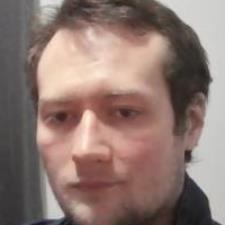There is nothing to solve: 1n = 1 for all values of n and the limit cannot be anything else; there are infinitely many values of 1n near 1 for any ε>0.
Josephine C.
asked • 07/05/19lim n-->infinity 1^n
Is lim n −>infinity 1^n simply 1? I know 1^infinity is indeterminate form, but I read somewhere that you only have to apply log differentiation if it is a function raised to another function. If this is wrong, how would I go about solving this?
Follow
•
1
Add comment
More
Report
1 Expert Answer
Still looking for help? Get the right answer, fast.
Ask a question for free
Get a free answer to a quick problem.
Most questions answered within 4 hours.
OR
Find an Online Tutor Now
Choose an expert and meet online. No packages or subscriptions, pay only for the time you need.





